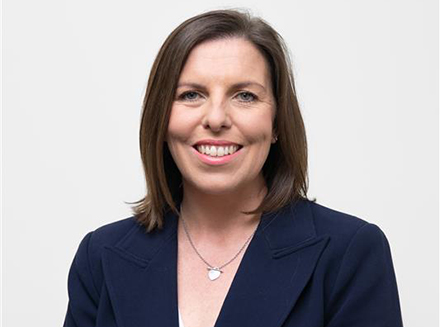Western Victoria’s new plantation hardwood strategic alliance, GT Hardwood, is actively educating the community on its plans to invest in new plantation trees to meet the world’s growing consumption for fibre-based products and mitigate the continued decline in resource. Source: Timberbiz
The collective, formed by the region’s main plantation hardwood (Eucalyptus globulus or Bluegum) growers, including ABP (Australian Bluegum Plantations), Midway Limited, and New Forests, recognised the need to collectively work on educating the community and government on the increasing market demand for its sustainable woodchip resource and plans for more local investment, including a focus on domestic value-add.
Founding Green Triangle Forest Industries Hub, CEO, Liz McKinnon was recently appointed as the GT Hardwood external affairs manager to support stakeholder engagement, strengthening relationships, and understanding of the contribution of the collective, which exports more than three million tonnes of sustainably grown plantation hardwood chip annually from the ports of Portland and Geelong.
This focus includes working with Midway promoting its commitment to invest up to $200 million in new plantations with associated carbon projects through new green field sites within the south west region. The investment supports the Federal Government’s National Forest Industries Plan which has earmarked the planting of one billion plantation trees nationally by 2030, as well as the national ambition towards net zero.
Midway is also working with local farmers to facilitate forestry based carbon projects on their land which produce carbon credits that can be sold to large emitters, diversifying on farm income.
Ms McKinnon and Midway leaders have been in the region this week, undertaking consultation with the Corangamite Shire Council demonstrating how hardwood plantations complement existing agriculture investments, highlighting that their management activities rely heavily on local employment.
“Australia’s plantation estate is in decline, losing a further 28,000 hectares in recent years, equating to a 250,000 decline over the past decade. This includes a 10 per cent contraction in the nation’s blue gum estate over the past decade, with significant parcels of blue gum land lost across the Green Triangle. This loss, largely due to conversion back to agricultural use, comes at a time when global demand for fibre continues to soar, with estimates the global market will quadruple by 2050,” Ms McKinnon said.
“Planting more trees to store carbon is a key lever to meet the international focus on decarbonisation. Our locally grown sustainable plantation hardwood chip also plays a valuable role producing recyclable paper and packaging to replace plastic products as well as replacing coal for energy generation.
“New trees will also play an instrumental role in reaching Net Zero Emission Targets for the agricultural sector. Our trees, which are often planted as woodlots and shelter belts, are a reliable tool in capturing and storing carbon whilst supporting farmers to diversify their farm income by earning carbon credits through the government backed Australian Carbon Credit Unit (ACCU) Scheme.”
Ms McKinnon said GT Hardwood was focused on optimising the use of its fibre and diversifying its market base, investing in domestic value-add research to understand how to use globulus in new structural timber products to support the nation’s strained housing market.
“Domestic demand for hardwood timber products continues to climb with hardwood imports into Victoria increasing by nearly 40 per cent since 2019. Our collective is investing in research to understand how to use eucalyptus globulus in structural timber and other hybrid products in an effort to reduce this reliance on imported products, which are often sourced from unsustainable sources,” Ms McKinnon said.
“We need our sustainable hardwood plantation sector to continue to grow to support the creation of new local jobs, support investment in new domestic manufacturing, meet growing market demands, and utilise trees in the fight against climate change. New plantation hardwood trees mean more carbon capture, locked away in these new earmarked locally produced timber products.”






